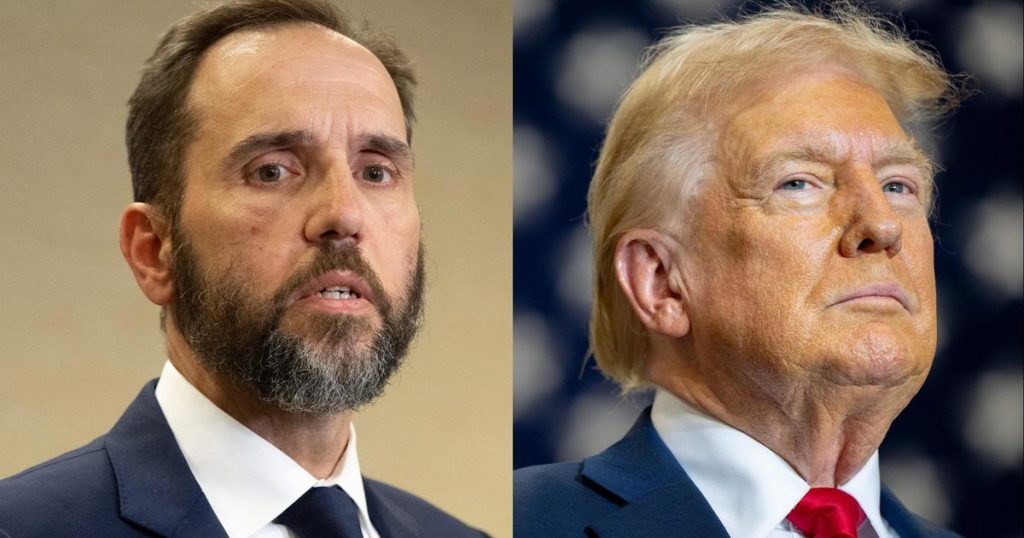Special counsel Jack Smith has requested additional time from the federal district court in Washington to assess the implications of President-elect Donald Trump’s victory in the 2020 election and his upcoming inauguration for a second term. Trump defeated Vice President Kamala Harris in the race for the White House, leading to discussions within the Justice Department and special counsel’s office on how to handle ongoing federal prosecutions against him. The Justice Department has a policy against prosecuting a sitting president, and Smith is asking for the current deadlines in the case against Trump to be set aside in light of these circumstances.
The case against Trump involves four federal charges related to an alleged unlawful scheme to subvert the transfer of power following the 2020 election. Trump has pleaded not guilty and maintained his innocence throughout the proceedings. The case was put on hold for several months as Trump argued that he was immune from federal prosecution, a claim that was ultimately rejected by the Supreme Court in July. The case then returned to U.S. District Judge Tanya Chutkan, who oversaw the issuance of a new indictment against Trump that narrowed the allegations to comply with the Supreme Court’s ruling. The two sides are now debating whether the new charges are valid.
The ongoing legal battles involving Trump also include hush money payments to women who claimed to have had relationships with him, alleged violations of campaign finance laws, and disputes over classified documents from his administration. The hush money case involves Trump’s former lawyer, Michael Cohen, who has implicated the former president in efforts to silence the women before the 2016 election. Cohen has served a prison sentence for his role in the scheme and has cooperated with authorities in their investigations. Trump has denied any wrongdoing in relation to the hush money payments and other legal matters brought against him.
In addition to the hush money case, Trump is also facing scrutiny over potential violations of campaign finance laws related to payments made to Stormy Daniels, a pornographic actress who claimed to have had an affair with him. The allegations suggest that campaign funds were used to cover up the affair, which could constitute a violation of federal election laws. Trump has denied the allegations and dismissed them as politically motivated attacks by his opponents. The legal battles surrounding these issues are ongoing, with prosecutors and defense attorneys presenting arguments in court about the legitimacy of the charges and the evidence presented.
The classified documents case involves Trump’s handling of sensitive government information during his time in office. There are concerns that classified materials were mishandled or improperly disclosed, potentially posing risks to national security. Investigations into these allegations are ongoing, with officials seeking to determine the extent of any wrongdoing and hold responsible parties accountable. Trump has denied any wrongdoing in relation to the handling of classified documents and has pushed back against claims that he jeopardized national security interests during his presidency.
Overall, Trump’s legal issues are complex and multifaceted, involving federal charges related to the 2020 election, hush money payments, campaign finance violations, and classified documents. The outcomes of these cases could have significant implications for Trump’s political future and legal standing. As the legal battles continue to unfold, the public and legal experts will be closely watching to see how these cases are resolved and what impact they may have on the former president and his legacy.


